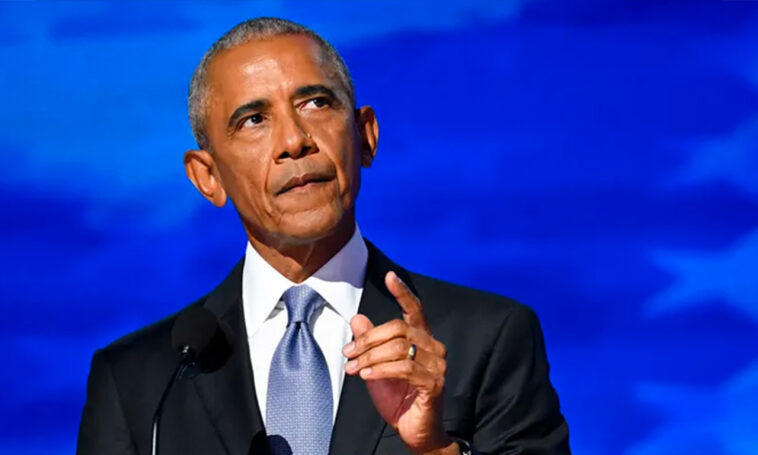The Black Men for Trump advisory board calls out former President Obama for urging Black men to support Vice President Kamala Harris based on race.
The Black Men for Trump advisory board has fired back at former President Barack Obama over his recent comments urging Black men to support Vice President Kamala Harris. The group described Obama’s appeal as deeply insulting, accusing him of reducing Black Americans to race-based voting blocs.
Obama made headlines last week during a surprise visit to Pennsylvania. He specifically called out Black men, arguing they should support Harris with the same enthusiasm they once showed for his campaigns in 2008 and 2012.
He noted, “My understanding, based on reports I’m getting from campaigns and communities, is that we have not yet seen the same kinds of energy and turnout in all quarters of our neighborhoods and communities as we saw when I was running.”
He emphasized that the lack of enthusiasm seemed more pronounced among Black men.
In response, the Black Men for Trump advisory board issued a joint statement saying, “President Obama’s recent call for Black men to support Kamala Harris based solely on her skin color, rather than her policies, is deeply insulting.” The statement highlighted that Black Americans are not a monolith and that they should not be expected to support any candidate simply because they share a similar racial background.
The group criticized Obama for perpetuating what they call the “worst kind of identity politics.” They argued that suggesting Black men should vote for Harris based solely on her race is demeaning. They stated, “It’s demeaning to suggest that we can’t evaluate a candidate’s track record – especially when Kamala Harris has done more harm than good to Black communities.”
Obama’s remarks came during a critical time as the 2024 election approaches. His comments were perceived as an attempt to rally support for Harris amid growing concerns over her campaign’s energy. He pointedly addressed the notion that some Black men might be hesitant to support a female candidate for president, stating, “Part of it makes me think… you just aren’t feeling the idea of having a woman as president.”
The Black Men for Trump advisory board, which includes conservative activists and former political figures, expressed their frustration at the Democratic Party’s approach to Black voters. They claimed that “for decades, the Democrat Party has promoted failed policies that disrupted generational wealth, undermined Black culture, and contributed to the breakdown of the Black household.” This sentiment resonates with many who feel that traditional Democratic policies have not effectively addressed the challenges facing Black communities.
Prominent members of the advisory board include former Oklahoma State Representative TW Shannon and former Detroit Mayor Kwame Kilpatrick. They are joined by Republican Representatives Byron Donalds of Florida and Wesley Hunt of Texas. The group encouraged their supporters to back former President Donald Trump, asserting that he delivered tangible results for Black Americans during his time in office.
The advisory board emphasized that Trump restored the American Dream by creating jobs and lowering Black unemployment. They also pointed to the establishment of Opportunity Zones and the permanent funding secured for Historically Black Colleges and Universities (HBCUs) as significant achievements that benefited Black families.
The debate surrounding identity politics is becoming increasingly prominent as the election approaches. Many believe that voters should consider candidates based on their policies rather than their race or gender. The Black Men for Trump advisory board argues that true representation goes beyond skin color and requires a thorough evaluation of a candidate’s record and impact on the community.
Obama’s office has not yet responded to the criticisms from the advisory board. The discourse surrounding this topic highlights a divide within the Black community regarding political allegiance and expectations from leaders. While some emphasize the importance of race in political representation, others advocate for a more nuanced approach that prioritizes policies and results.
The ongoing conversation is likely to shape the strategies of both political parties as they seek to mobilize Black voters in the upcoming election. As Black Americans continue to navigate the complexities of political identity, discussions around the role of race in voting decisions will remain a critical issue.
In a statement reflecting the group’s views, they concluded, “Black Americans are not a monolith, and we don’t owe our votes to any candidate just because they ‘look like us.’” This encapsulates the broader sentiment that the choice of candidate should be informed by policies, values, and actions rather than identity alone. As the election season heats up, it will be essential for candidates to engage in meaningful conversations about how they plan to address the needs of diverse communities.






Join the Community and Be a Part of the Conversation
You must be logged in or registered to post a comment.